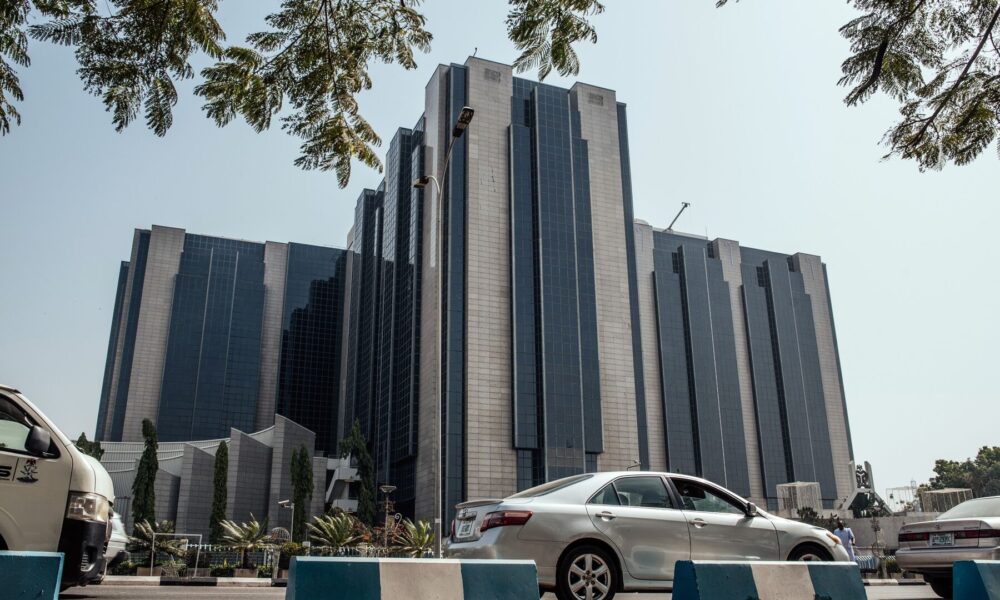Economy
CBN’s Monetary Policy Raises Concerns Over Nigeria’s Q2 Growth

Nigeria’s economic outlook for the second quarter of 2024 is clouded with uncertainty as economists and analysts express concerns over the impact of the Central Bank of Nigeria’s (CBN) aggressive monetary policy.
Following a series of interest rate hikes aimed at curbing inflation, there are growing fears that these measures could stifle economic growth in Africa’s most populous nation.
The National Bureau of Statistics (NBS) reported that Nigeria’s Gross Domestic Product (GDP) grew by 2.98 percent in real terms in the first quarter of 2024, up from 2.3 percent in the same period of 2023.
However, this growth represents a slowdown from the 3.46 percent recorded in the fourth quarter of 2023.
The outlook for the second quarter is less optimistic with predictions of slower growth due to the CBN’s tightening measures.
“The year-on-year growth makes sense given that in the first quarter of last year, we were affected by the uncertainty about currency replacement, fuel queues, and elections,” said Ayo Teriba, CEO of Economist Associates.
“However, the tightening measures by the CBN that started in February are likely to take their toll in Q2 and subsequent quarters.”
Last week, the CBN raised its monetary policy rate by 150 basis points to 26.25 percent, marking the third consecutive hike.
This brings the total increase since February to 750 basis points, a move designed to combat inflation and defend the naira.
Analysts at FBN Quest warned that these rate hikes could slow economic growth and reduce consumer spending.
“Ultimately, the impact on the general economy could be a potential slowdown in economic growth, with consumer spending suppressed, and a decrease in business investments,” FBN Quest stated in a recent note.
The NBS report also highlighted that the services sector was the primary driver of GDP growth in the first quarter, recording a 4.32 percent increase and contributing 58.04 percent to the aggregate GDP.
The agriculture sector grew by 0.18 percent, a modest improvement from the -0.90 percent recorded in Q1 2023.
Meanwhile, the industry sector grew by 2.19 percent, up from 0.31 percent in the first quarter of 2023.
Ikemesit Effiong, head of research and partner at SBM Intelligence, noted that services have significant exposure to monetary policy effects.
“Since growth was largely powered by services, I would expect some slow growth in Q2. But I don’t think the slowdown might be actually significant. It might just be around 2.4-2.5 percent.”
Analysts at Comercio Partners observed that the GDP growth rate has been slower yet steady, hovering around three percent from 2021 to 2023.
However, they warned that the CBN’s rate hikes could have a deleterious effect on growth.
“The central bank had hiked the MPR by a hefty 600 basis points to 24.75 percent to curb inflation in March. Despite these efforts, inflation has been stubbornly high, hitting a record 33.69 percent in April, eroding consumer purchasing power. The increased interest rate has also raised the cost of borrowing for real sectors, stifling economic growth,” Comercio Partners noted.
President Bola Tinubu’s recent economic reforms, including the removal of a costly petrol subsidy and the lifting of currency controls, have exacerbated inflationary pressures, further complicating the economic landscape.
The naira has suffered a near 30 percent devaluation this year, following a 40 percent devaluation last June. Rising inflation has weakened consumer purchasing power, while businesses grapple with higher operating costs.
Muda Yusuf, CEO of the Centre for Promotion of Private Enterprises, highlighted the importance of oil output in sustaining growth.
“We might see positive growth in Q2 if the improvement in oil production is sustained and the CBN is able to reduce volatility in the forex market because it is affecting confidence and fueling speculation,” he said.
Joseph Nnanna, Chief Economist at the Development Bank of Nigeria, cautioned that the latest rate hike could impede real sector growth and hinder GDP growth this year.
“The 150bps rate hike is pernicious to the real economy as households and MSMEs will feel the impact immediately,” Nnanna said.
“However, the rate hike has a signalling effect on the fiscal authorities. They need to improve fiscal discipline and prioritize spending to improve growth.”